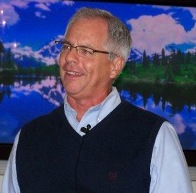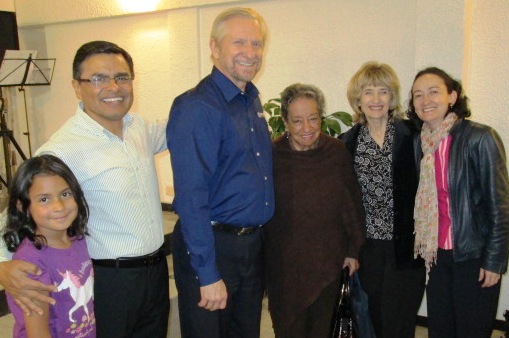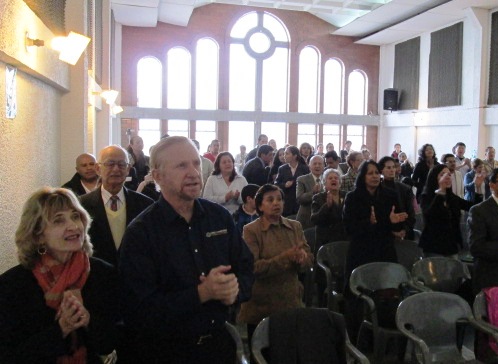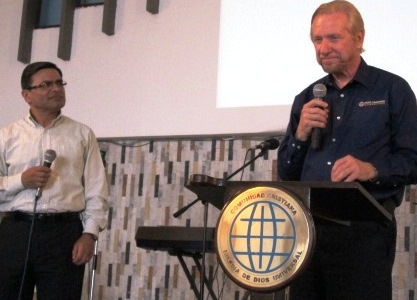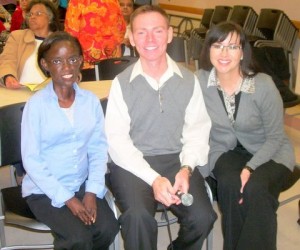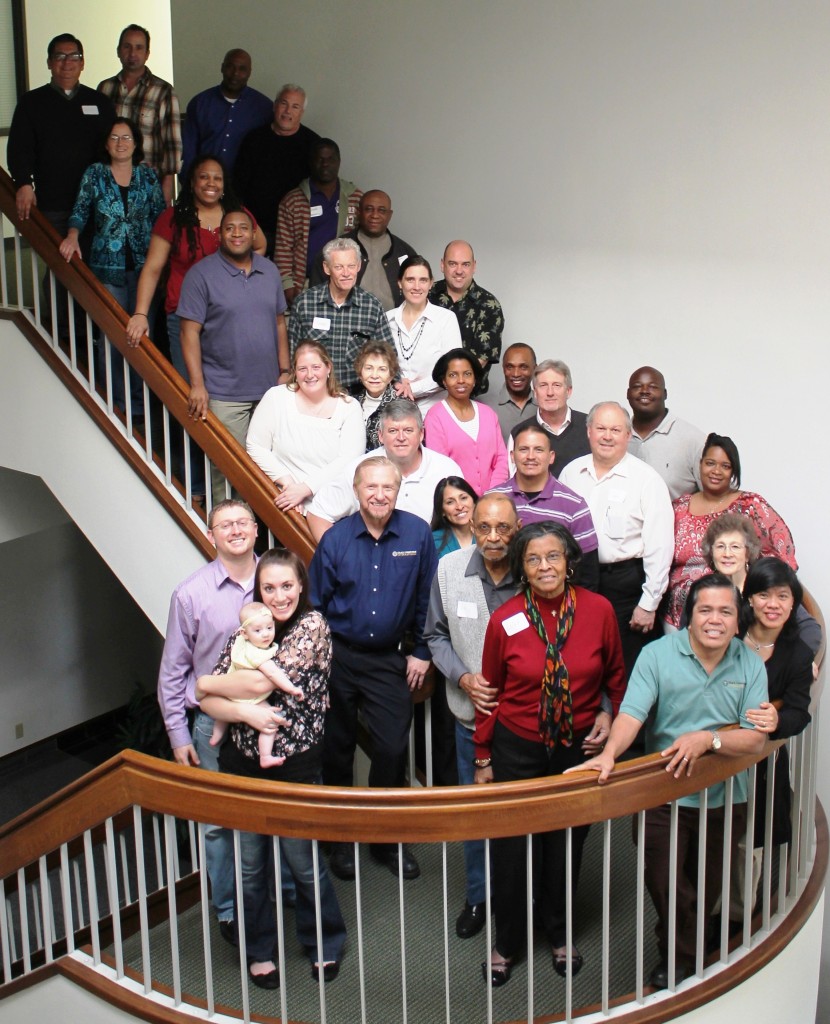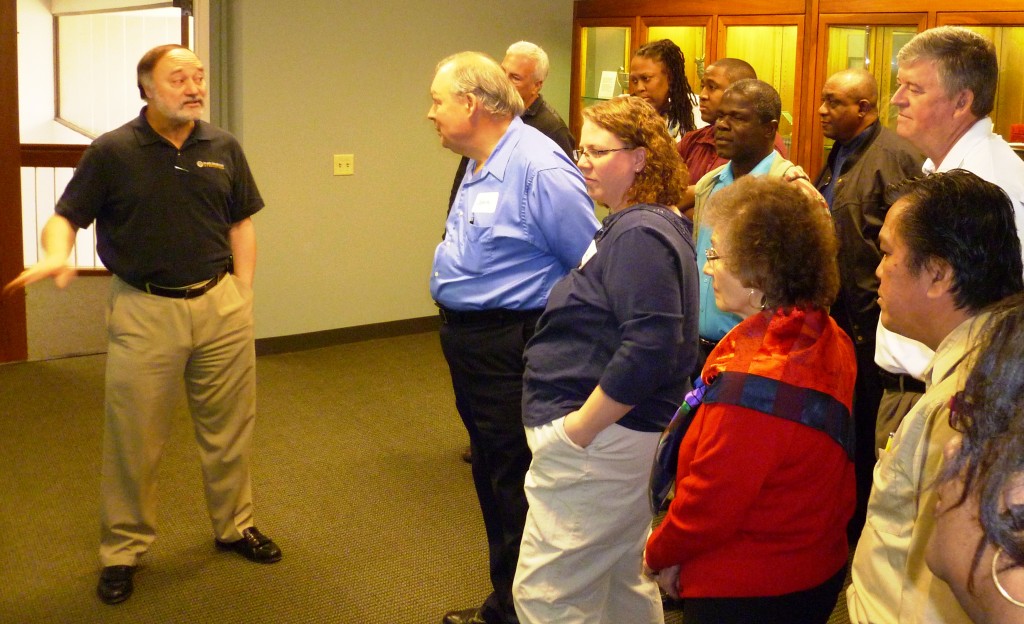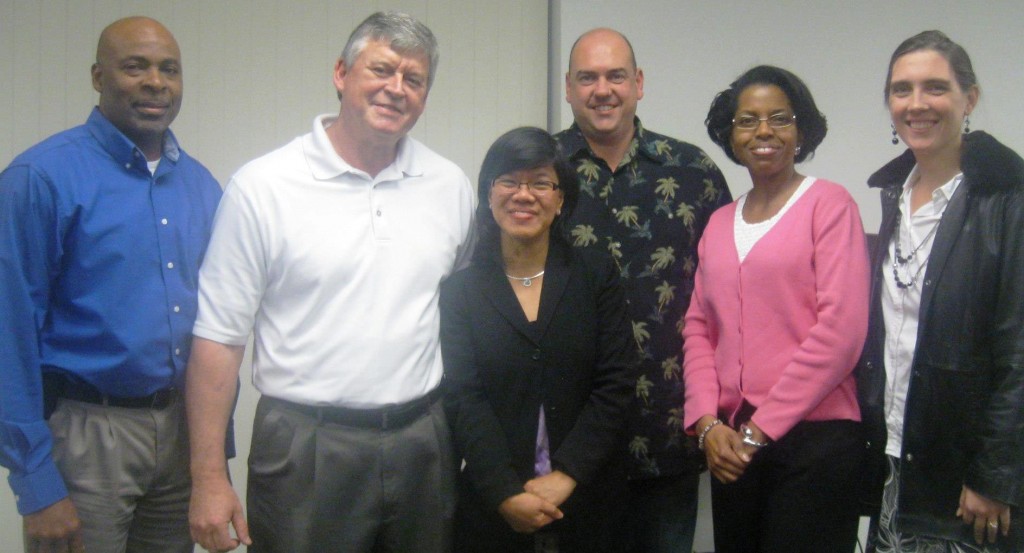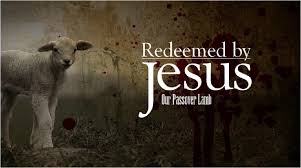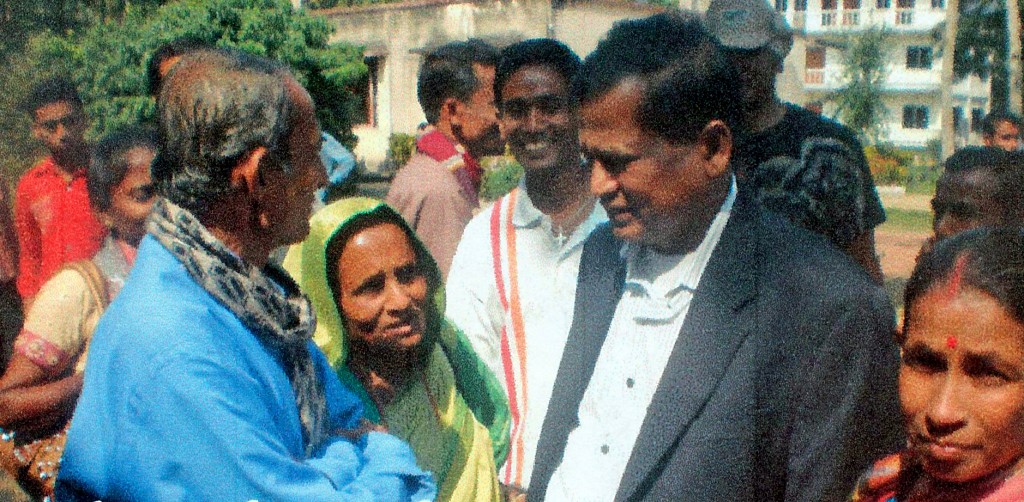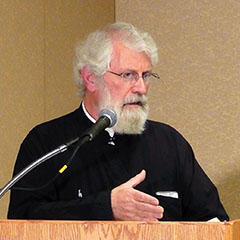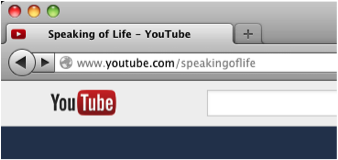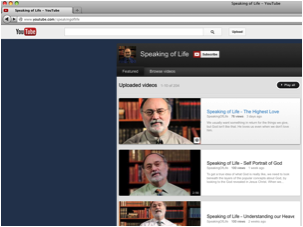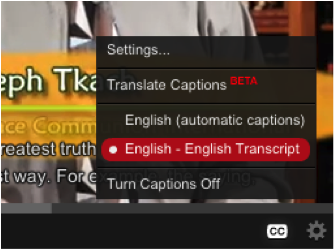Dear Brothers and Sisters in Christ,
 March 14 is Albert Einstein’s birthday. He was born 134 years ago. Einstein has always been a fascinating personality to me. More than a hundred years ago, he wrote a paper describing a radical insight into the nature of light, which turned the conventional physics of that day on its head and led to the development of Quantum Theory. What may be less recognized is the potential impact that Einstein’s ideas had on theology.
March 14 is Albert Einstein’s birthday. He was born 134 years ago. Einstein has always been a fascinating personality to me. More than a hundred years ago, he wrote a paper describing a radical insight into the nature of light, which turned the conventional physics of that day on its head and led to the development of Quantum Theory. What may be less recognized is the potential impact that Einstein’s ideas had on theology.
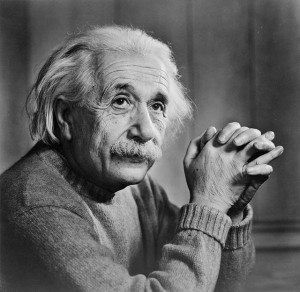 Disciplines like physics and chemistry are called “hard sciences.” Not because they are difficult, but because those physical phenomena respond to the scientific method, yielding testable predictions through controlled experiments that can produce accurate and quantifiable data. Disciplines like sociology, political science and theology are less exact, more difficult to quantify and don’t easily yield predictable results outside the experimental environment. So they are sometimes called “soft sciences.”
Disciplines like physics and chemistry are called “hard sciences.” Not because they are difficult, but because those physical phenomena respond to the scientific method, yielding testable predictions through controlled experiments that can produce accurate and quantifiable data. Disciplines like sociology, political science and theology are less exact, more difficult to quantify and don’t easily yield predictable results outside the experimental environment. So they are sometimes called “soft sciences.”
Einstein showed that hard sciences are not so hard after all. He realized that what were considered established ideas about the nature of matter were too simplistic. Light, for example, behaved in some unfathomable way, as both a wave and a particle. This apparent paradox defied a simple scientific explanation. Einstein said, “What I see in nature is a magnificent structure that we can comprehend only very imperfectly, and that must fill a thinking person with a feeling of humility.” The idea of light acting as both a wave and a particle is still a difficult concept to grasp. It is an idea that would seem to belong to a soft science, not physics.
As scientists probe ever further into the realms of the very large and the incomprehensibly small, they have found even more extraordinary paradoxes. Stephen Hawking, a brilliant contemporary theoretical physicist has written, “Quantum physics is a new model of reality that gives us a picture of the universe. It is a picture in which many concepts fundamental to our intuitive understanding of reality no longer have meaning” (The Grand Design). According to physicist Lisa Randall in Knocking on Heaven’s Door: How Physics and Scientific Thinking Illuminate the Universe and the Modern World:
We are poised on the edge of discovery. The biggest and most exciting experiments in particle physics and cosmology are under way and many of the world’s most talented physicists and astronomers are focused on their implications. What scientists find within the next decade could provide clues that will ultimately change our view of the fundamental makeup of matter or even of space itself—and just might provide a more comprehensive picture of the nature of reality.
I find this a fascinating topic to explore. In some ways, it has helped me in my journey to appreciate the triune nature of God. When I see that paradoxes exist in nature, it is not so difficult for me to accept that the nature of the Creator of light would also seem, to my limited human understanding, also somewhat paradoxical.
Albert Einstein was not a “believer” in the traditional sense. Though he considered himself an agnostic, he was a firm critic of atheism. He would have deplored the strident voices of some scientists today who angrily insist that God does not exist. He wrote, “In view of such harmony in the cosmos which I, with my limited human mind, am able to recognize, there are yet people who say there is no God. But what really makes me angry is that they quote me for the support of such views.”
Although Einstein did not believe in a personal God, he never missed chapel service at Princeton when prayers were being offered for Jews trapped in the concentration camps. He maintained, “even though the realms of religion and science in themselves are clearly marked off from each other,” there are “strong reciprocal relationships and dependencies as aspirations for truth derive from the religious sphere.” He once explained that “science without religion is lame, religion without science is blind.”
Einstein died in 1955. It is not only the hard sciences that owe him a debt of gratitude. When asked how he came to his great new discovery, he said: “I stood before the universe and listened.” He showed that being scientific does not mean making everything understandable with absolute certainty. He demonstrated that great new advances in knowledge come only when we let a reality, far greater than our previous understanding would allow, determine how we are to know it and in humility let it tell us its nature.
In this way, Einstein surely opened the door for some to recognize the legitimacy of the so-called “soft science” of theology; for in theology we stand before a Reality that far exceeds our understanding. But when we listen in humility at the place where God has personally made himself known, we can indeed have real, if not absolutely comprehensive, knowledge of God. And that place is a person, Jesus Christ.
Christian theology is not unscientific and science does not and cannot rule out a reality greater than ourselves—greater than our universe. Doing so would be, well, unscientific. As Einstein wrote:
Everyone who is seriously interested in the pursuit of science becomes convinced that a spirit is manifest in the laws of the universe—a spirit vastly superior to man, and one in the face of which our modest powers must feel humble.
With love in Christ’s service,
Joseph Tkach

